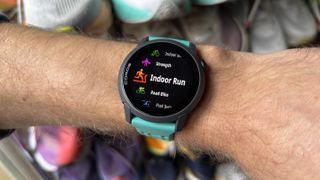Wellness
Explore Wellness
Latest about Wellness

Presidents' Day mattress sales LIVE 2026 — I'm tracking all of the best deals to help you sleep better from Saatva, Helix, Casper, and much more
By Ruth Jones last updated
The Presidents' Day mattress deals are here and my expert team and I are bringing you all the best mattress, bedding and sleep deals, with offers starting. at just $9.

I ran 80 miles in the Asics Superblast 2 and I’ve never seen it discounted like this before
By Nick Harris-Fry published
The launch of the Asics Superblast 3 means the Superblast 2 has dropped to its lowest price ever in the Asics sale, and it’s an outstanding all-rounder running shoe.

Sick of getting inaccurate data from your watch during treadmill runs? This clever Coros feature fixes it
By Nick Harris-Fry last updated
Running watches struggle to accurately gauge your pace and distance when running on a treadmill, but this simple Coros feature allows you to enter it manually.

Forget sit-ups — I’m training for my sixth marathon and use this exercise to strengthen my hips, activate my deep core and build functional alignment
By Jane McGuire published
Here's the ab exercise to add to your routine.

I’m a personal trainer who works with seniors — these are the 4 exercises I wish everyone would do before they turn 60
By Jennifer Rizzuto published
It’s never too late to start a fitness routine

I have very tight hips, but I’m aiming to fix that by doing this hip stretch every day
By Nick Harris-Fry published
If your hip flexors are as tight as mine, you might also benefit from doing the couch stretch, which I’ve been doing every day to try to improve mobility.

REI’s Presidents’ Day sale just dropped — save up to 50% on Patagonia, Arc’teryx, The North Face and more
By Olivia Halevy published
REI's Presidents' Day sale is offering tons of outdoor apparel and gear deals. Here's everything worth shopping now.

I ditched my Timberlands for these Vivobarefoot hiking boots — and I’m not going back
By Jeff Parsons published
The Vivobarefoot Tracker Textile hiking boots are water-resistant, comfortable and versatile enough to wear to the office as well as on the trail.
Here at Tom’s Guide our expert editors are committed to bringing you the best news, reviews and guides to help you stay informed and ahead of the curve!
 Club Benefits
Club Benefits












